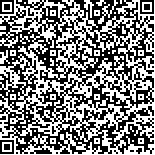| 引用本文: | 李厚丽,刘杭,熊礼龙,程晓亮,王茂义,马瑛,封卫毅.丹参酮IIA/速释辅料二元固态溶液的玻璃化转变温度研究[J].中国现代应用药学,2020,37(12):1417-1421. |
| LI Houli,LIU Hang,XIONG Lilong,CHENG Xiaoliang,WANG Maoyi,MA Ying,FENG Weiyi.Study on the Glass Transition Temperature of Binary Solid Solution Composed with Tanshinone IIA and Immediate-release Excipients[J].Chin J Mod Appl Pharm(中国现代应用药学),2020,37(12):1417-1421. |
|
| 本文已被:浏览 8938次 下载 4638次 |

码上扫一扫! |
|
|
| 丹参酮IIA/速释辅料二元固态溶液的玻璃化转变温度研究 |
|
李厚丽1, 刘杭2, 熊礼龙3, 程晓亮1, 王茂义1, 马瑛1, 封卫毅1
|
|
1.西安交通大学第一附属医院药学部, 西安 710061;2.西安医学院药学院, 西安 710021;3.西安交通大学化学学院, 西安 710049
|
|
| 摘要: |
| 目的 探索丹参酮IIA与不同速释辅料的相容性及对辅料玻璃化转变温度的影响。方法 采用溶剂法制备不同种类及比例的丹参酮IIA/速释辅料二元固态溶液,并进行差示扫描量热分析,测定其玻璃化转变温度。结果 丹参酮IIA与3种速释辅料均具有良好的相容性,不同种类辅料及比例的二元固态溶液,受到药物与辅料间的分子作用力、辅料的抗增塑作用等的影响,可对体系的玻璃化转变温度产生不同程度的改变。结论 本研究为以聚合物HPMC K4M、Kollidon VA64或Soluplus为辅料制备具有速释特性的丹参酮IIA无定型态给药体系提供了技术支持。 |
| 关键词: 丹参酮IIA 速释辅料 固态溶液 差示扫描量热分析 玻璃化转变温度 |
| DOI:10.13748/j.cnki.issn1007-7693.2020.12.002 |
| 分类号:R283.6 |
| 基金项目:国家自然科学基金项目(81603305);中央高校基本科研业务费专项资金资助项目(xjj2018119);西安交通大学第一附属医院院基金项目(2017QN-21) |
|
| Study on the Glass Transition Temperature of Binary Solid Solution Composed with Tanshinone IIA and Immediate-release Excipients |
|
LI Houli1, LIU Hang2, XIONG Lilong3, CHENG Xiaoliang1, WANG Maoyi1, MA Ying1, FENG Weiyi1
|
|
1.Department of Pharmacy, The First Affiliated Hospital of Xi'an Jiaotong University, Xi'an 710061, China;2.College of Pharmacy, Xi'an Medical University, Xi'an 710021, China;3.School of Chemistry, Xi'an Jiaotong University, Xi'an 710049, China
|
| Abstract: |
| OBJECTIVE To explore the miscibility of tanshinone IIA(Tan-IIA) with different immediate-release excipients and to evaluate the influences on glass transition temperature(Tg) values of the excipients by Tan-IIA. METHODS Binary solid solution consisting by different types and ratios of immediate-release excipient/Tan-IIA were prepared by solvent method. Then the Tg of the solid solutions was measured by differential scanning calorimetry. RESULTS Tan-IIA had good miscibility with the three types of immediate-release excipients, and the Tg values of the binary solid solution with different types and ratios of excipients could be influenced with different degrees through anti-plasticizing effect of excipients and/or the molecular force between excipients and drug. CONCLUSION This study can provide technical support for the preparation of Tan-IIA loaded immediate-release amorphous drug delivery system using HPMC K4M, Kollidon VA64 or Soluplus as excipients. |
| Key words: tanshinone IIA immediate-release excipients solid solution differential scanning calorimetry glass transition temperature |
